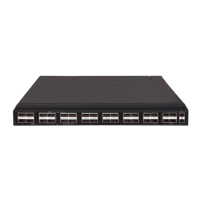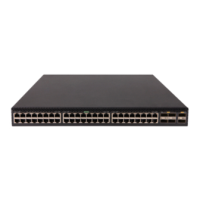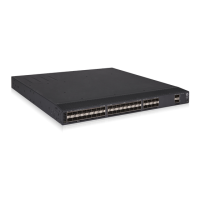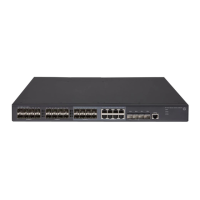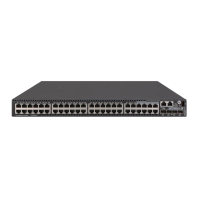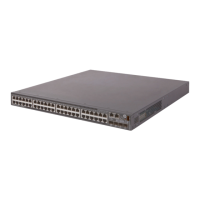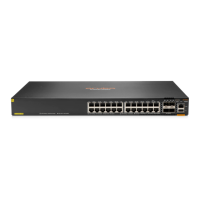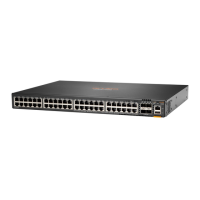119
Enabling the spanning tree feature in PVST mode
Step Command Remarks
1. Enter system view.
system-view
N/A
2. Enable the spanning tree
feature.
stp global enable
When the device starts up with
initial settings, the spanning tree
feature is globally disabled.
When the device starts up with
factory defaults, the spanning tree
feature is globally enabled.
For more informaiton about the
initial settings and factory
defaults, see Fundamentals
Configuration Guide.
3. Enable the spanning tree
feature in VLANs.
stp
vlan
vlan-id-list
enable
By default, the spanning tree
feature is enabled in VLANs.
4. Enter Layer 2 Ethernet
interface or Layer 2
aggregate interface view.
interface
interface-type
interface-number
N/A
5. Enable the spanning tree
feature on the port.
stp
enable
By default, the spanning tree
feature is enabled on all ports.
Performing mCheck
The mCheck feature enables user intervention in the port status transition process.
When a port on an MSTP, RSTP, or PVST device connects to an STP device and receives STP
BPDUs, the port automatically transits to the STP mode. However, the port cannot automatically
transit back to the original mode when the following conditions exist:
• The peer STP device is shut down or removed.
• The port cannot detect the change.
To forcibly transit the port to operate in the original mode, you can perform an mCheck operation.
For example, Device A, Device B, and Device C are connected in sequence. Device A runs STP,
Device B does not run any spanning tree protocol, and Device C runs RSTP, PVST, or MSTP. In this
case, when Device C receives an STP BPDU transparently transmitted by Device B, the receiving
port transits to the STP mode. If you configure Device B to run RSTP, PVST, or MSTP with Device C,
you must perform mCheck operations on the ports interconnecting Device B and Device C.
Configuration restrictions and guidelines
The mCheck operation takes effect on devices operating in MSTP, PVST, or RSTP mode.
Performing mCheck globally
Step Command
1. Enter system view.
system-view
2. Perform mCheck.
stp global mcheck
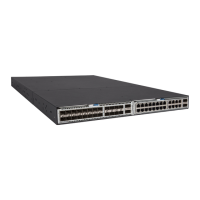
